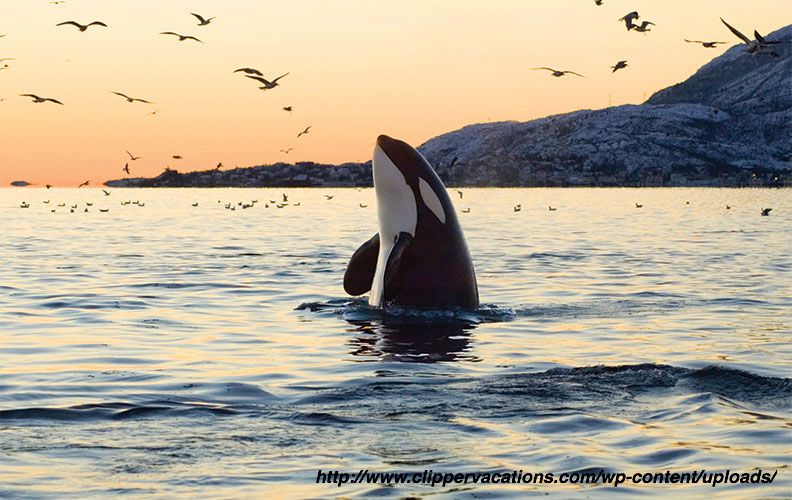French orca taught to speak words and blow raspberries
- N Wong
- Jan 30, 2018
- 2 min read
A 14-year old orca named Wikie has become the first killer whale known to blow raspberries and mimic a selection of words with its head above water. This sounds like a joke, however, there was a serious purpose. Orca mimicry is not an unfamiliar occurrence. Orca’s living around dolphin’s have been shown produce similar sounds with more clicks and longer calls, basically mimicking the bottlenose dolphin language.

Researchers wanted to see “how flexible a killer whale can be in copying sounds” says Josep Call, professor in evolutionary origins of mind at the University of St Andrews and a co-author of the study. Imitating vocal sounds is a key component of language and the ability to mimic is rare in mammals. Wikie is not the first animal to produce human sounds, in fact dolphins, elephants, parrots, orangutans and belugas whales have been observed mimicking us.
Wikie was able to quickly copy both orca and human sounds from the 7 trials. Interestingly, two human sounds and all of the human-produced orca sounds were reproduced on Wikie’s first try – although only one human sound – “hello” – was correctly produced more than 50% of the time on subsequent trials. The next step is test these trials with wild orcas Call says. The scientist thought Wikie’s abilities to imitate may provide insights into the process by which whales imitate sounds they hear in the wild and acquire dialects. Acquiring calls and dialects have been shown not to be accounted for genetically or by environmental factors. Instead speech patterns are transmitted vertical (mother to offspring) and vertically (peer to peer). Wikie’s capabilities provide further complicated speech evidence that orcas can modify their own patterns in response to hearing new sounds.
The research has been published in the journal Proceedings of the Royal Society B.





Comments